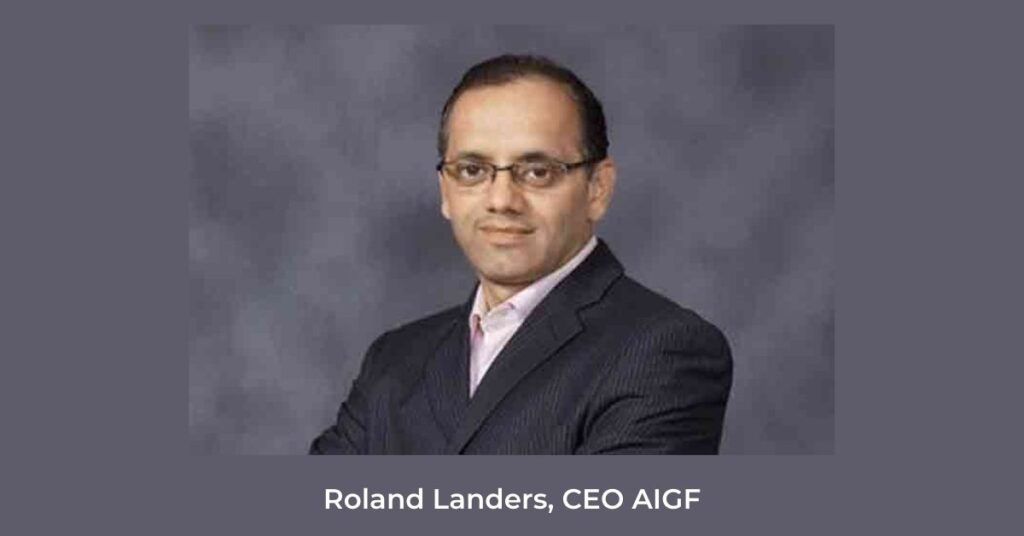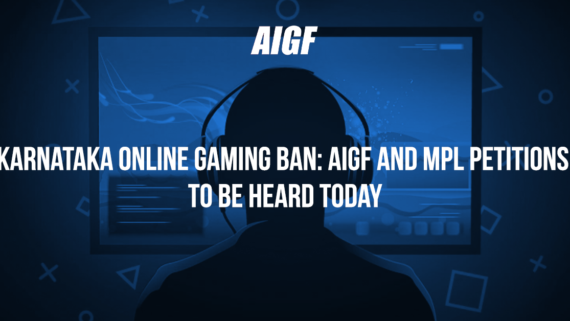Making Online Skill Gaming Future Ready
As per the EY-FICCI Report released in March 2020, the number of online gamers in India rose 31% in the year 2019 at 365 million & is foreseen to scale 440 million by 2022. The online gaming industry is experiencing growth at a CAGR of 22%. By the year 2024, the industry is expected to reach about $4 billion.
On January 29th, the All-India Gaming Federation (AIGF), the apex industry body for online skill gaming platforms in India, in collaboration with the Times of India & Vijay Karnataka played host to a webinar named, ‘ Karnataka, Are you game for future?’ as part of their ‘ Game for Future’ campaign.
The topic for the webinar was ‘Thriving Ecosystem of Online Skill Gaming’, with the panellists being Justice Vikramjit Sen, Chairman AIGF Advisory Panel, Former Judge Supreme Court of India, Former Chief Justice – Karnataka High Court, Shweta R Kohli, Director and Head of Public Policy, Sequoia India & South East Asia, Biren Ghose, Chair – CII National Committee on AVGC & Immersive Media; President – ABAI and Country Head, Technicolor India & AIGF CEO Roland Landers. The session moderator was Narayanan Krishnaswami, Editor with the Times of India Group.
This panel discussion on creating an ecosystem for online skill gaming brought forth some intriguing viewpoints.




Why is online gaming a sunrise industry?
Shweta Kohli said, “It is exciting that India is one of the top 5 mobile gaming markets. Our country alone makes up for about 13% of the global market share. The pandemic has provided better acceptance of digital technology.” She further added, “When a category has so much of consumer attraction, it is only natural for the investor community to be interested in it. The one thing that investors look for is certainty and regulating clarity and this is what is plaguing the industry right now and needs to be fixed.”
Zooming in on regulation
In view of ushering in uniformity into the industry, the online gaming industry in addition to experts have been urging the Indian government to institute a self-regulatory body that will standardize regulations governing the industry.
Justice Sen stated that judiciary has done the spadework & paved the way for the government to codify the laws to regulate gaming & its genres (instead of banning).
Shweta spoke on why regulations are necessary, “Centre level guidelines will at some level have to lay the foundation and base for States to start. Regulations require interoperability across geographies. And currently, we don’t even have regulations that work Inter-State. This creates confusion for the investor community.” She added, “Though their reasons might vary, regulation is important for all the three stakeholders – the government, the industry, and the user. For the government regulations are important to understand how the industry can create revenue; for the investors, regulations will provide clarity on which they can draw a roadmap on and for the end-user, regulations will ensure protection.”
Definite guidelines coming up
Biren stated that with the help of policy intervention & positive response from different stakeholders, there is no doubt that Bengaluru will shine bright & create as many as 12,000 jobs in the upcoming five years. Biren said, “I am confident that the State of Karnataka would be the first to draft a policy for gaming. I believe that Bengaluru has a very enabling, supportive approach to business and can create an ecosystem, as it has proved in the case of the Biotech and Electronics industries.”
Guest speaker, Mr Bommai, Minister of Home Affairs, Law, Parliamentary Affairs & Legislation, Government of Karnataka said, “There are a lot of grey areas in online gaming and each State has treated them differently. People try to divide them into ‘Skill Games’ and ‘Games of Chance’. However, skill games can be converted into game of chance and vice-versa, thus giving rise to issues, both technical and legal. The government of Karnataka is studying myriad online games in entirety, and for those that can be played not only in India but from any part of the world. Other States such as Telangana, Tamil Nadu and Andhra Pradesh have come out with their laws. We are going to study the entire gambit and then come up with a comprehensive list of laws for Karnataka soon.”
Devising a plan
Biren recommended that the IT BT department will have to sensitise the government by creating a vision in addition to a reference group & address concerns such as:
- Are all online games betting or gambling platforms?
- Are online game platforms manipulating technology so that users don’t win?
- Which body in the government will take care of grievances?
- How is the KYC of players going to be verified?
- How do we stop games that are not legalized?
Biren affirmed, “Since the last 10 years, that we have been going to colleges and helping scholars become the best technicians and artists, transforming Bengaluru into a hub it is today, is not a new story. All we need to do is, put it in the context of what is already created.”
AIGF CEO Roland Landers summed the session by discussing the various possibilities of the government working jointly with AIGF. He stated, “AIGF governs its stakeholders through AIGF Skill Games Charter based on integrity, global best practices, and more. And wherever States have come forward to create a framework in association with a body, it has always worked well.”











Comments
Comments are closed.